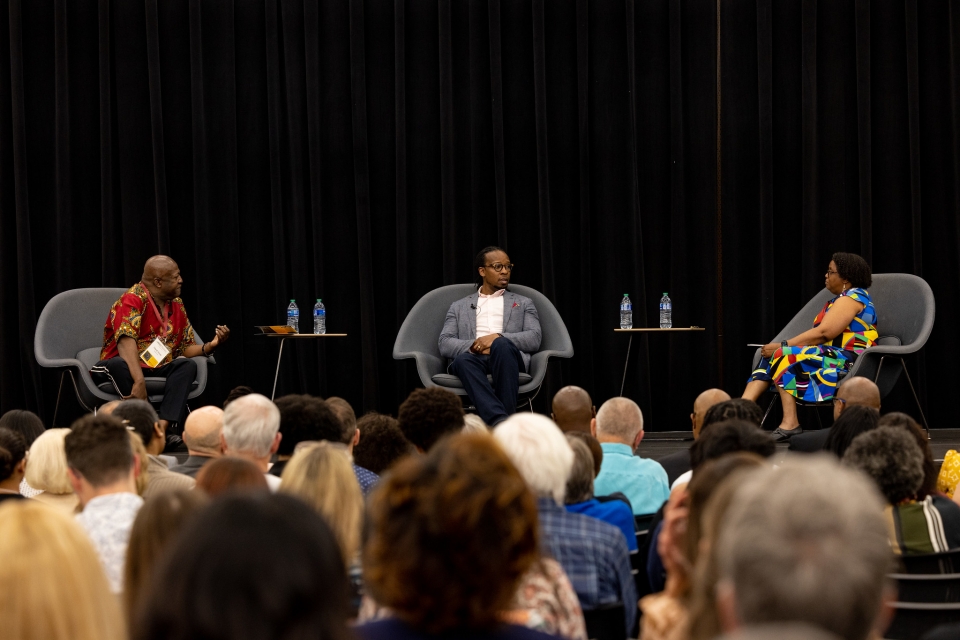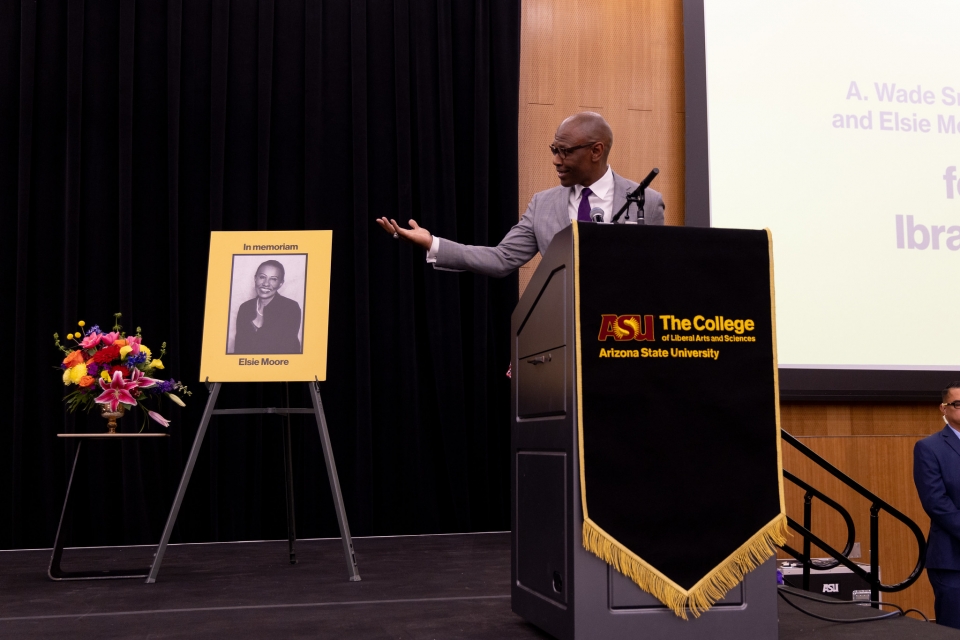Ibram X. Kendi shares anti-racist insights at ASU event
At an event that drew such a large crowd it prompted a last-minute venue change, notable author and historian Ibram X. Kendi spoke at Arizona State University on Thursday evening on a range of topics relating to race in America, including institutionalized racism, politics and what it will take to make meaningful change.
“In order to create a society whereby we have policies and practices that are equitable and just and fair — and provide equal opportunity for all, and institutions that are built on those policies — we don't necessarily need to create a critical mass of Americans who are anti-racist,” said Kendi, a MacArthur “genius grant” winner and author of five No. 1 New York Times bestselling books including “How to Be Antiracist.”
“We just need enough people who can get into positions of power, who will then institute those policies and practices.”
Kendi — the Andrew W. Mellon Professor in the Humanities at Boston University and the founding director of that university’s Center for Antiracist Research — was the keynote speaker at the annual A. Wade Smith and Elsie Moore Memorial Lecture on Race Relations, which was moved to the Student Pavilion on the Tempe campus after about 1,200 people registered for the event. The event was organized by The College of Liberal Arts and Sciences.

ASU faculty members David Hinds (left) and Lisa Anderson provided questions for anti-racist scholar Ibram X. Kendi on Thursday evening at the Student Pavilion on ASU's Tempe campus. Kendi was delivering The College of Liberal Arts and Sciences' A. Wade Smith and Elsie Moore Memorial Lecture on Race Relations. Photo by Meghan Finnerty/ASU
Kendi shared the stage with two ASU faculty as moderators: David Hinds, associate professor in the School of Social Transformation, and Lisa Anderson, associate professor in the same school and associate dean in the Graduate College.
Anderson began by asking Kendi to clarify his distinction between racist and racism. He explained that racism is an institution and is systemic while a racist is an individual policy, idea or person.
“A more specific definition of racism,” he said, “is a powerful collection of policies leading to injustice and are substantiated by ideas of racial hierarchy.”
Kendi, who was named one of Time magazine’s 100 most influential people in 2020, illustrated the point more locally. He pointed to voter policies in Arizona that he said have made it “harder for Black, Brown and Indigenous people to vote.”
Kendi discussed the sense of inferiority that many Black people have internalized as a result of systemic racism and controversial issues such as reparations for slavery. He shared several examples of how former enslavers were compensated after slaves were liberated. He pointed out that it shouldn’t be surprising that descendants of enslaved people should feel entitled to similar compensation. Generational wealth — or the prevention thereof — is a powerful force, he said.
He also addressed the difficulty of teaching Black history in today’s political climate.
“I would encourage teachers to recognize that these policies and this rhetoric is meant to scare them, to compel them to self-censor themselves and to compel them to think that lies are truth and truth are lies,” said Kendi, urging teachers to find a like-minded support system.

Chris Howard, executive vice president and chief operating officer of the ASU public enterprise, speaks at Thursday's event. He presented his year’s A. Wade Smith and Elsie Moore Community Award to Richard Richardson, professor emeritus of educational leadership and policy studies at ASU. Photo by Meghan Finnerty/ASU
His brief talk, which included a few audience questions at the end, was preceded by a land acknowledgement and the presentation of this year’s A. Wade Smith and Elsie Moore Community Award to Richard Richardson, professor emeritus of educational leadership and policy studies at ASU. The award was created in 2005 to recognize individuals whose passion for equality has helped advance race relations in Arizona.
Richardson retired from ASU in 1999 after 22 years on the faculty. During that time he collaborated with Smith on research, assessing the institution’s progress toward equity and diversity. He co-authored eight books that focus on community colleges, literacy, and achieving quality and diversity in postsecondary education.
“Dick Richardson is a man who exemplifies the values to which Wade Smith and Elsie Moore dedicated their respective lives,” said Chris Howard, executive vice president and chief operating officer of the ASU public enterprise, in presenting the award.
Kenja Hassan, assistant vice president for the Office of Government and Community Engagement at ASU, kicked off the evening with a tribute to Moore’s life and career. Several family members were in attendance.
The lecture series was established in 1995 to honor Smith, a former ASU professor, for his tireless efforts to improve race relations. In 2022, with the death of Moore, Smith’s wife and beloved ASU faculty member, the name of the lecture was changed to honor her as a pioneer in diversity as well. Moore was with ASU for 40 years.
Kendi was the 25th speaker in the lecture series, following such other notables as actor and humanitarian Danny Glover and American philosopher and social critic Cornel West.
Top photo: American author, professor and anti-racist activist Ibram X. Kendi was the featured speaker at the A. Wade Smith and Elsie Moore Memorial Lecture on Race Relations held at ASU's Tempe campus on April 13. Photo by Meghan Finnerty/ASU